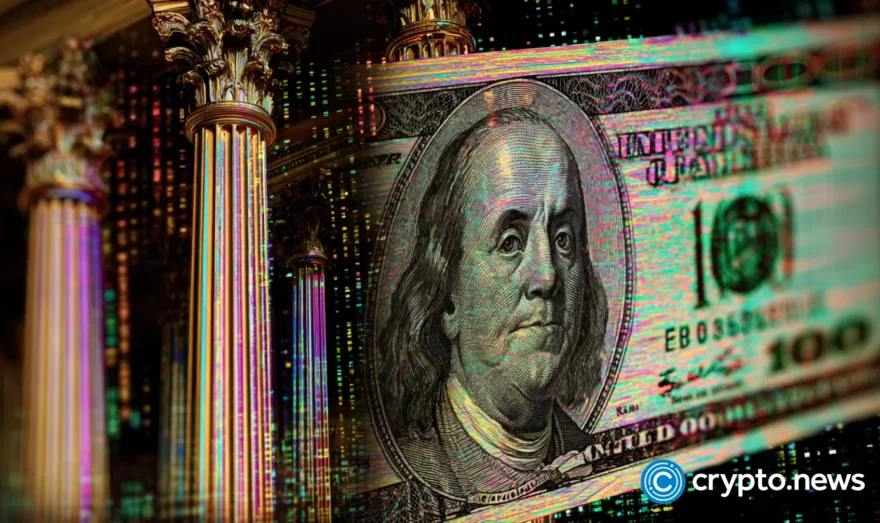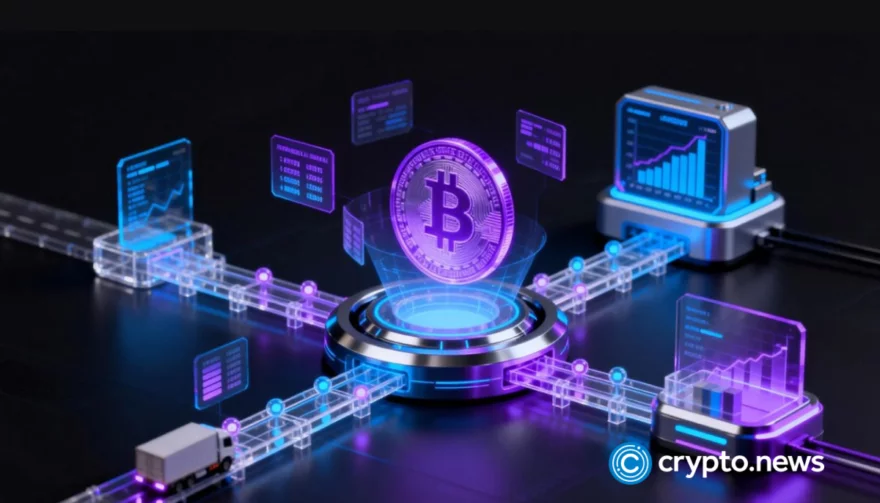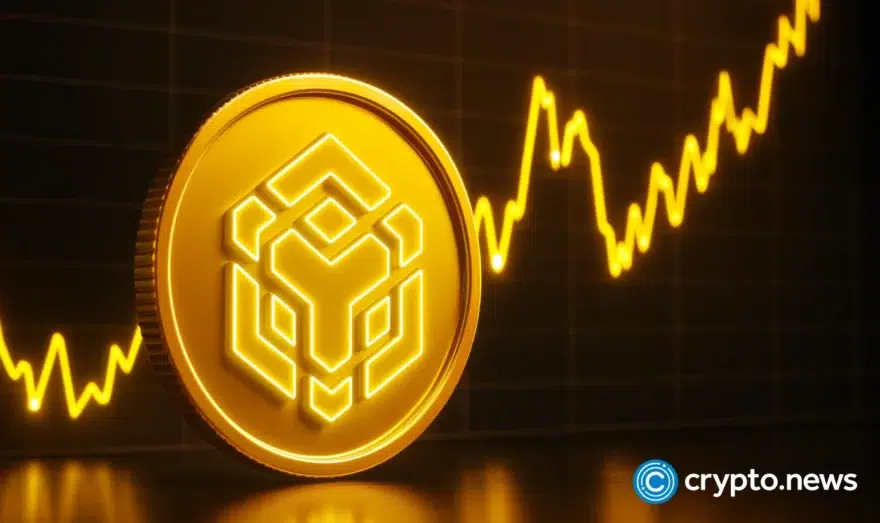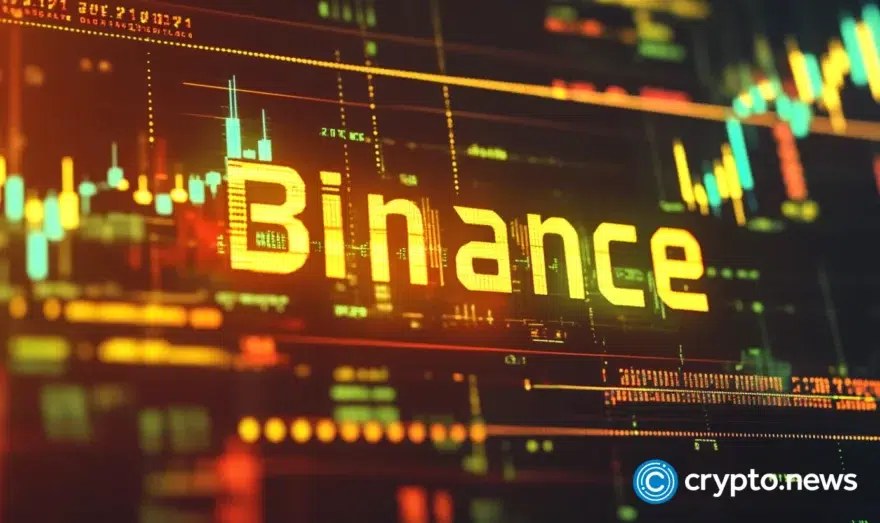Founders of Binance Coin
The founders of the BNB coin are Changpeng Zhao, also known as CZ, and Chinese investor and entrepreneur Yi He.
CZ and Yi He have been involved in the blockchain industry since 2013. They launched the BNB Coin through their company, Binance, in 2017 as an ERC-20 token on the Ethereum network. At the time of writing, CZ is Binance’s chief executive officer, while Yi He is the company’s chief customer service officer.
What makes BNB unique?
BNB’s uniqueness largely stems from its position as the native token of the Binance ecosystem. It performs several roles in that ecosystem, including getting early investment opportunities in Binance Launchpad projects and powering the governance and security of the BNB Smart Chain.
Additionally, BNB has some use cases specific to the Binance exchange, like enabling its holders to get reduced trading fees and participate in token sales. Furthermore, you can only pay for gas fees on BSC using Binance Coin.
BNB is also integrated into BSC, allowing users to interact with the dApps and defi protocols built on the blockchain.
The token also has a strong market presence. As of Feb 21, 2026, the BNB price is $626.33, making it the 5 biggest cryptocurrency by market cap, with a fully diluted valuation of $85,333,385,160.
Exploring BNB’s auto-burn mechanism
Binance Coin is a deflationary token whose developers designed it to reduce its total supply over time. It achieves this through a process called auto burn, which is essentially Binance buying back a predetermined number of BNB tokens from the market and permanently removing them from circulation.
Through auto-burn, Binance hopes to potentially increase the BNB price by making it scarcer. The mechanism works as follows: every three months, Binance uses a percentage of its profit to buy back BNB from the open market. The exchange then sends those BNB tokens to a “dead” address with no private keys, making them inaccessible to everyone.
The process is carefully managed by Binance, with the exchange announcing its website and social media channels about the specific date of each burning event and the amount of BNB it will destroy.
Binance does not decide this amount arbitrarily; it calculates a portion of the trading fees it collected in the previous quarter and uses it to buy back BNB tokens. Each auto-burn event removes a fixed percentage of BNB tokens from circulation, gradually reducing the total supply.
The auto-burn mechanism is transparent and verifiable. Binance not only publishes a record of each token burn event on the BSC blockchain, but anyone can check the burn address and its transactions on the blockchain explorer.
Total supply of BNB in circulation
As of Feb 21, 2026, there are $136,359,062 BNB tokens in the market. However, because of BNB’s auto-burn mechanism, the number of tokens circulating in the market and tradeable by the public will continue dropping until it falls below 100 million.
Tracing the history of Binance coin
Binance coin has a relatively short history compared to other major cryptocurrencies like Bitcoin (BTC) and Ethereum. Its story started in July 2017 with the founding of the Binance exchange by Changpeng Zhao and Yi He.
On July 25, 2017, the crypto exchange conducted an initial coin offering for BNB, raising about $15 million by selling 100 million tokens. Two months later, in September 2017, Binance officially launched its trading platform, with BNB as its native cryptocurrency, even though it was an ERC-20 token built on Ethereum.
In October 2017, Binance started promoting the adoption and utility of BNB within its ecosystem by introducing a fee structure that encouraged users to hold and use BNB for trading on the exchange.
July 2018 saw Binance conduct the first BNB auto-burn event, which involved the destruction of more than 900,000 BNB tokens. A few months after that, in December 2018, Binance announced its own blockchain, the Binance Chain, through which it intended to leverage BNB for faster and more efficient transactions within the Binance ecosystem.
The Binance Chain mainnet went live in April 2019, and shortly after, Binance migrated all BNB tokens from Ethereum onto the Binance Chain, with BNB becoming the new blockchain’s native token.
Soon after the Binance Chain mainnet launch and the subsequent migration of BNB tokens, Binance launched the next component of its ecosystem, Binance DEX, a decentralized exchange built on top of the Binance Chain with BNB integrated into it to allow users to trade crypto assets directly from their wallets.
BNB found further use in September 2019 with the introduction of Binance Launchpad, a platform for hosting token sales and ICOs that required prospective investors to hold BNB to participate.
Eight months after Binance Launchpad emerged, the BNB price skyrocketed to an all-time high (ATH) of $690 on May 10, 2021. The rise in BNB value also led to positive growth in Binance stock in the crypto space, as it experienced an exponential increase in its customer base.
In August 2021, Binance introduced Binance Smart Chain, a parallel blockchain to the original Binance Chain that supports smart contracts, dApps, and defi protocols. Again, Binance coin became integral to this new component of the Binance ecosystem, as it was used for gas fees, staking, and interacting with dApps.
2022 was a generally tough year for the digital asset industry. Many platforms and projects had to weather a debilitating crypto winter that caused billions of dollars in losses, with most major cryptocurrencies shaving off more than half their all-time high prices. BNB was not spared either. Currently, the token is trading -54.28% below its ATH.
How Binance Coin works
There isn’t much difference in how Binance Coin works compared to other cryptocurrencies. It’s a governance token and the primary means of transacting in its native environment. It can also be bought and sold on crypto exchanges and stored in BNB-compatible wallets.
Like other crypto assets, the BNB price chart experiences troughs and peaks as its value fluctuates with demand and use.
BNB powers the BNB Chain, a merged layer-1 blockchain that combines the original Binance Chain (also known as the BNB Beacon Chain) and the Binance Smart Chain built parallel to it. On the new BNB Chain, Binance Coin has been rebranded as “Build N’ Build” and is used for gas fees, staking, and voting.
To maintain scarcity and potentially impact the BNB Coin price, Binance conducts regular token burns by using a portion of its revenues to repurchase and eliminate BNB coins. These quarterly burns have been carried out since 2017 and will continue until only half of BNB’s original maximum supply remains.
Utilizing BNB: common use cases
Originally, BNB was a means of raising capital for the Binance exchange, but as the company grew and its ecosystem expanded, new use cases for the token emerged.
- Travel: BNB holders can use their tokens to pay for airfare and hotel accommodation on several online travel agencies, including TravelbyBit and Trip.io.
- Token sales: BNB holders can participate in token sales and ICOs for projects hosted on Binance Launchpad. To qualify, potential investors in such projects must hold a certain amount of BNB for a particular period.
- Staking: BNB tokens can be locked up, or staked, on the BNB Chain, allowing holders to participate in the validation of transactions on the network and earn rewards in the form of additional BNB tokens. By staking BNB, users contribute to network security and consensus protocols.
- Payment processing: BNB can be utilized as a means of payment for goods and services from merchants or online platforms that accept BNB, including Pundi X, Monetha, HTC, and CoinGate.
- Access to exclusive features: There are often exclusive features and offers promoted on the Binance ecosystem, including limited series NFTs (non-fungible tokens), educational resources, or premium cloud infrastructure. The only way to access such features and benefits is usually by using Binance Coin.
- Governance: BNB allows its holders to participate in the governance and decision-making of the Binance ecosystem. They can engage in voting processes related to platform upgrades, proposals, and other governance matters, giving them a voice in shaping the ecosystem’s future.
- Gas fees: BNB is the primary currency for paying gas fees on the BNB Chain. Gas fees are required to process transactions and execute smart contracts on the blockchain. BNB is used to pay for these fees, facilitating the smooth operation of applications and transactions on the network.
Where can you buy Binance Coin (BNB)?
You can buy BNB directly from its native crypto exchange, Binance, using a credit card, debit card, or bank transfer.
The token is also listed on several centralized exchanges, such as Coinbase, Kraken, and Huobi. However, you must create an account and verify your identity on these platforms before buying BNB.
Some peer-to-peer platforms, services that directly connect crypto buyers and sellers, such as Binance P2P, also allow users to buy and sell BNB amongst each other using fiat money, gift cards, and more.
You can also buy BNB from decentralized exchanges such as Binance DEX, Uniswap, and PancakeSwap. These platforms allow users to trade crypto without intermediaries or custodians, but you must connect your wallet to them and swap other cryptocurrencies for BNB.
In certain locations, you may find crypto ATMs that allow users to buy and sell an assortment of cryptocurrencies, including BNB.
How to earn BNB
There are several ways to earn BNB within the Binance ecosystem, including trading, staking, savings, token sales, yield farming, and referral programs. Let us take a closer look at each of them:
- Trading: You can earn BNB as an active trader on the Binance exchange. When you use BNB to pay trading fees, you receive significant fee discounts, which can accumulate over time, depending on the frequency of your trades.
- Staking: You can also stake BNB on Binance Earn or the BNB Chain and earn additional BNB tokens as a reward.
- Savings: Binance offers a product called Binance Savings, where you can deposit your BNB into several instruments, including flexible savings and fixed-term deposits, and earn interest in BNB.
- Token sales: Binance Launchpad hosts token sales and ICOs, and holding BNB allows you to participate in these sales, providing potential opportunities to earn new tokens or rewards.
- Yield farming: You can join in yield farming defi protocols on BSC, where you give liquidity to DEXs or liquidity pools and earn rewards, often paid in BNB.
- Referral and affiliate programs: Binance has a referral program where you can earn commissions by referring new users to the platform. You can receive a percentage of their trading fees, including BNB, as your referral rewards. Additionally, if you are an affiliate partner with Binance, you can earn BNB by promoting Binance products and services through your referral links or marketing efforts.
How BNB is secured
BNB is secured through several mechanisms within the Binance ecosystem. It operates on the blockchain, meaning all transactions are recorded transparently and immutably.
Furthermore, BSC uses a variation of the proof-of-stake (PoS) consensus mechanism called proof-of-staked-authority (PoSA). Participants stake BNB to become validators, authenticate transactions, create new blocks, and secure the blockchain and token.
BNB’s auto-burning mechanism also helps secure the token by reducing its total supply over time. It helps maintain scarcity, potentially pushing up the Binance token price.
Additionally, the token can be stored on multiple secure crypto wallets that employ encryption and assorted security measures, including two-factor authentication (2FA), to protect private keys and ensure that only authorized users can access their BNB tokens.
The Binance ecosystem’s operator also continuously monitors and adits their systems to identify and address potential vulnerabilities and security risks.
Introduction to the Binance platform
At the heart of Binance is its crypto exchange, where users can buy, sell, and trade a selection of digital assets. Additionally, Binance offers features such as spot trading, margin trading, and futures trading, enabling users to explore various trading strategies.
Beyond the exchange, Binance offers Binance DEX, a decentralized exchange built on BSC that allows users to trade cryptocurrencies directly from their wallets.
In addition to trading services, Binance provides multiple opportunities for users to engage with the crypto ecosystem. Binance Launchpad hosts token sales and ICOs for innovative projects, granting users early access to promising tokens. Meanwhile, Binance Earn allows users to stake their assets and earn rewards, while Binance Savings offers various savings products with varying interest rates.
Are there any BNB derivatives?
Yes. Binance offers several derivatives that get their value from BNB. One example is its coin-margined futures contract, which is collateralized and settled in BNB, BTC, or ETH.
Investors can trade BNB-margined contracts, which allow them to earn BNB when their futures position returns a profit.
BNB’s daily trading volume
BNB’s current daily trading volume is $535,266,024
BNB all-time high and low prices
BNB’s all-time high price is $1,369.99, attained on Oct 13, 2025. Since its launch, Its lowest level has been $0.0398177, which was reached on Oct 19, 2017.
BNB market cap and fully diluted valuation
The current market capitalization of BNB is $85,333,385,586. Its fully diluted valuation is constantly changing, given its deflationary nature and fluctuating token price. BNB had a total supply of 153.8 million tokens, each priced at $626.33, to give it a fully diluted value of $85,333,385,160.
FAQs
What does BNB stand for?
BNB was formerly the symbol for Binance Coin, but following the growth and revamp of the Binance ecosystem, it now stands for “Build and Build.” The renaming was an attempt to unshackle BNB from the confines of the Binance brand.
Where can I earn BNB?
You can earn BNB tokens on several platforms in the Binance ecosystem. For instance, the Binance exchange occasionally offers promotions and events where users can earn BNB as a reward for participating in certain activities.
Sometimes, Binance distributes free BNB tokens through airdrops or community giveaways.
What is the difference between Binance BNB and Smart Chain?
Binance BNB is the native cryptocurrency of the Binance ecosystem, while Smart Chain is a complementary blockchain to the main BNB Chain (now rebranded as the BNB Beacon Chain) that supports smart contracts, dApps, and defi protocols. It’s also compatible with the Ethereum Virtual Machine (EVM), meaning developers can migrate Ethereum-based applications to Binance.






